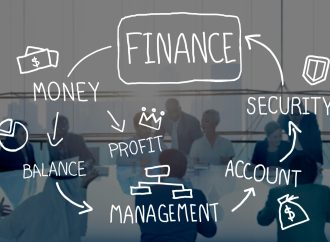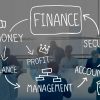Are you ready for a possible bump in the Federal Reserve’s interest rates? It’s no secret that the Fed has hinted at a potential increase to 6% in recent months, which could have far-reaching consequences for investors and borrowers alike. As such, it’s important to be prepared for any eventuality – whether you’re managing your
Are you ready for a possible bump in the Federal Reserve’s interest rates? It’s no secret that the Fed has hinted at a potential increase to 6% in recent months, which could have far-reaching consequences for investors and borrowers alike. As such, it’s important to be prepared for any eventuality – whether you’re managing your own personal finances or running a business. In this blog post, we’ll take a closer look at what you need to know about preparing for an increase in the Fed Funds Rate, including how it could impact everything from mortgage rates to stock prices. So buckle up and get ready – because change is on the horizon!
The Federal Reserve and the Fed Funds Rate
As the Fed nears the end of its quantitative easing program, many are wondering if we could see an increase in the Fed funds rate in 2015. Here’s what you need to know about how this could affect you. The Federal Reserve has kept interest rates at historically low levels since the 2008 financial crisis, in order to encourage borrowing and stimulate economic growth. The Fed funds rate is the rate at which banks lend money to each other overnight and is a key determinant of other interest rates in the economy. If the Fed were to raise the fed funds rate, it would signal that they believe the economy is strong enough to handle higher interest rates. This could lead to higher mortgage rates, credit card rates, and other consumer lending rates. It would also likely cause the stock market to sell off, as higher interest rates make bonds more attractive relative to stocks. While a Fed rate hike is not certain, it is something that you should be prepared for. If you have variable-rate debt, such as a variable-rate mortgage or home equity line of credit, you will want to consider refinancing into a fixed-rate loan before rates start to rise. And if you’re in the market for a new car loan or home loan, it may be wise to lock in a low fixed-rate now while they are still available.
How an Increase in the Fed Funds Rate Affects You
An increase in the Federal Reserve’s target for the federal funds rate can influence other short-term interest rates, including rates on certificates of deposit and money market accounts. The goal of raising the federal funds rate is usually to slow the economy by making it more expensive for businesses to borrow money. As a result, you may see higher prices and less economic activity. A fed funds rate hike can also cause the stock market to drop and make it harder for consumers to get loans. If you’re thinking about buying a home or a car, you may want to do so before the Fed raises rates. And if you have variable-rate debt, such as a credit card with a variable APR, your monthly payments could go up.
What to Do If the Fed Funds Rate Increases
If the federal funds rate goes up, there are a few things you can do to prepare. First, take a look at your debt situation. If you have any variable-rate debt, like credit card debt or a home equity line of credit, you’ll want to pay that off as soon as possible. Next, review your budget and make sure you’re prepared for higher interest rates on things like loans and mortgages. You may need to adjust your budget accordingly. Finally, if you have money in savings, consider moving it to a high-yield account. This way, you’ll earn more interest on your money and be better prepared for a potential rate hike.
Conclusion
In conclusion, an increase in the fed funds rate to 6% is a potential possibility. Preparing for this event can be done by understanding how it might affect markets and your personal finances. Knowing what type of investments are safe during times of higher interest rates, having enough savings in reserve to cover any sudden changes in prices or fees that may arise due to the increased rate, as well as being aware of economic indicators will all help you remain prepared for whatever happens with the Fed Funds Rate. Taking these steps now can ensure that you are ready if and when this increase takes place.





















Leave a Comment
Your email address will not be published. Required fields are marked with *